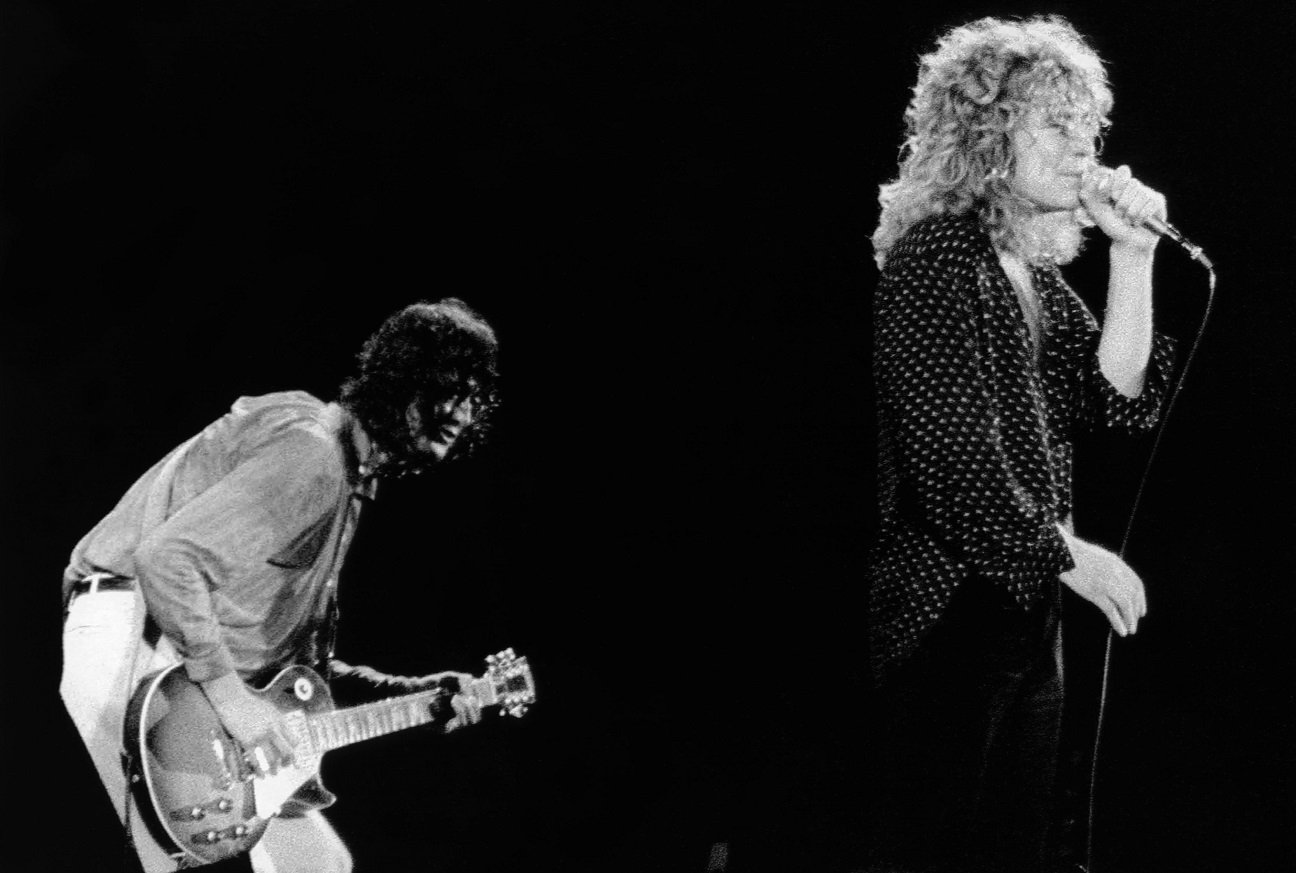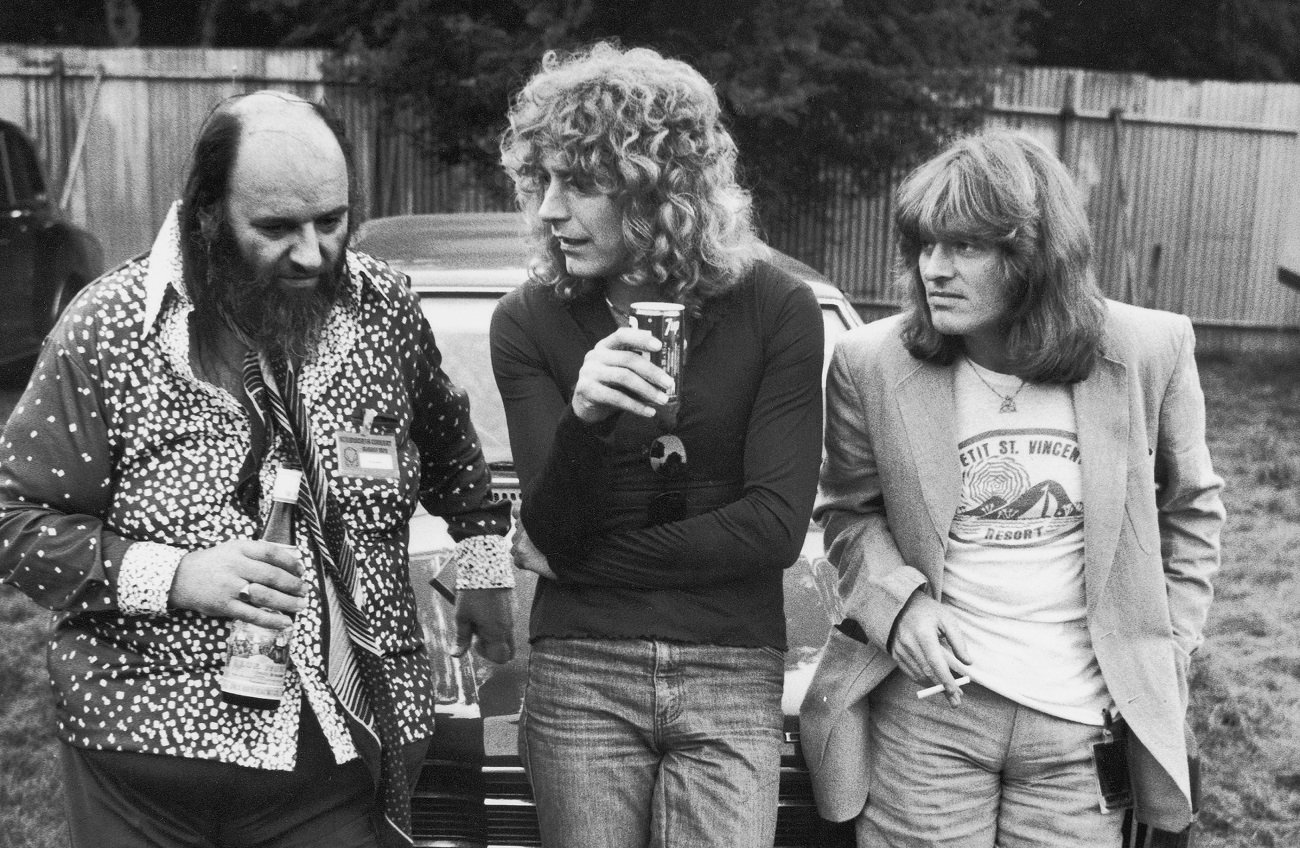What Robert Plant Regretted About Led Zeppelin’s ‘Carouselambra’
When rock fans wonder what might have been for Led Zeppelin had John Bonham lived, a good place to start is In Through the Out Door, the group’s final studio album released August 1979. All things considered, that last record stands as the oddest in the Zeppelin catalog.
Even Zep fans used to the band’s eclectic taste couldn’t have seen the samba break on “Fool in the Rain” coming. And the same probably goes for the bouncy, piano-driven “South Bound Saurez” and impossibly light “All My Love.” (Listen to the latter’s keyboard solo when you get a chance.)
Jimmy Page himself is among those who’ve expressed reservations about the overall tone of “All My Love” (and In Through the Out Door in general). But with “In the Evening” and the grandiose “Carouselambra” also on the tracklist there’s no denying that trademark Zeppelin quality of the release.
At 10:31 in running time, “Carouselambra” justifies its working title, “The Epic.” And Robert Plant’s cryptic lyrics invite all sorts of speculation. Looking back at the recording many years later, Plant said he wished the track had come off differently.
Robert Plant spoke of how he ‘can’t hear the words’ on the Led Zeppelin epic ‘Carouselambra’

If you want a working definition for the word “obscure,” dig into Plant’s underrated lyrics for “Carouselambra.” It begins with him singing about “sisters of the wayside” who “bide their time in quiet peace” before ramping up the epic imagery for several long verses.
So who was it who in their “bliss unchallenged mighty feast” strove to “keep their doubts at bay” while “faceless legions stood in readiness to weep”? To these ears, it sounds like Plant singing about Led Zeppelin and its audience in the era after Physical Graffiti (1975).
The references sound more personal and pointed as the song continues. “Who cares to dry the cheeks of those who saddened stand?” Plant asks in his third verse. Following the death of his five-year-old son the year before the In Through the Out Door sessions, you can imagine him asking that of Page and John Paul Jones. (Neither attended the funeral.)
Regardless of the specific line’s meaning, in 2003 Plant told Mojo (via Stuff Nobody Cares About) that “Carouselambra’s” lyrics were certainly about the band in that period. The thing is, it’s hard to tell with the vocals so muffled in the mix. “I rue it so much now,” Plant said. “The whole story of Led Zeppelin in its latter years is in that song, and I can’t hear the words.”
Plant said the song contained a message for someone close to him

If you hear Plant’s lines about a “sea of futile speech” as a reference to his son’s funeral, you might take the following lines as another reference to Page’s absence. “Where was your word?” Plant sang once the music slows down. “Where did you go?”
You can keep drawing parallels to that period of Zeppelin (as Plant did) in the very next lines. “Where was your helping?” Plant sang. “Where was your bow?” While Plant would call out to mighty armies of yore on any given occasion, I can’t help picturing the image of Page wielding his bow onstage here.
Around the release of In Through the Out Door, Plant told an interviewer (via Stuff Nobody Cares About) he definitely addressed a “someone” on “Carouselambra.” “The song was about someone who, when one day realizing the song was written about them, would say, ‘My God! Was it really like that?'”
In other interviews over the years, Plant has spoken about drifting away from Zeppelin’s pull in that period. In “Carouselambra,” it sounds like he’d made a decision. “I couldn’t stand it another day,” he sang. “Another day.” When people wonder whether Zeppelin might have had a future in the ’80s, the discussion might start here.


